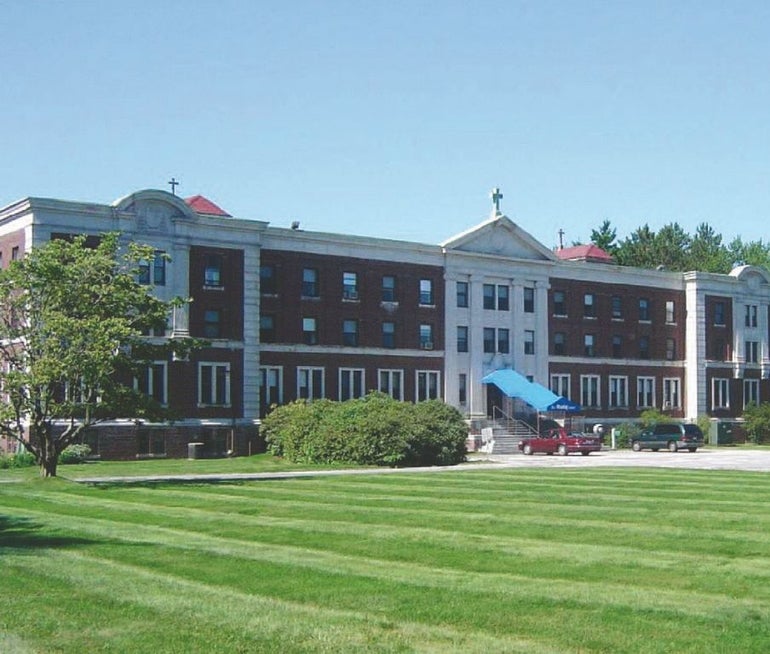The Marist Fathers of Boston have struggled to sell a former religious retreat center on Framingham’s Pleasant Street since it was listed for sale in the spring of 2012, and after almost a year-and-a-half of working with a Waltham-based health care company, the order of priests is back at square one.
Gregory Katz, an attorney with the Boston firm Ropes & Grey, who represents the Marist Fathers, said opposition from neighbors who did not want Walden Behavioral Care to construct and open an inpatient psychiatric treatment center in the residential area forced his client to abandon a purchase-and-sale agreement with Walden.
Lawyer hopes future buyers will see better reception
The property has been relisted with the commercial brokerage firm Wyman Street Advisors. The firm hasn’t listed an asking price, but the firm reported last May Marist was asking for between $5 and $10 million for the property.
Katz said the Marist Fathers will market the property to a broad range of buyers; residential development of the nearly 40-acre parcel, and its two buildings, is a possibility. That’s because few uses outside residential use are allowed without a special permit from the local Zoning Board of Appeals — something Walden was unable to achieve. However, the Marist Fathers reported to the ZBA that residential buyers were hard to come by the first time the property was listed.
Meanwhile, Katz believes that the nature of the Walden project may have made neighbors reticent. A different type of business, either for-profit or nonprofit, may have an easier time getting a permit, Katz speculated.
“With a different user, it might (be) a different picture,” Katz said.
Proceeds of the sale of the 518 Pleasant St. property will support the pension fund for retired Marist priests, Katz said, which explains the order’s desire to find a buyer. But Katz said the Marist Fathers were pleased with Walden Behavioral Care’s proposal, because it aligns with the former mission of the retreat as a place for healing.
“They were willing to stick with (the Walden plan) for quite some time,” Katz said.
From a business development standpoint, the project offered advantages over residential development. It would have had minimal impact on town services as a place of business, compared with a condominium or apartment complex, which may increased demand for public safety and school services. And if the project under Walden was a for-profit company, it would have generated tax revenue on the property for the first time in its 80-year history.
But that wasn’t a sure bet. After failing to receive a special permit from the ZBA last fall, Walden refiled a new proposal under a nonprofit educational entity. The company was angling to develop the treatment facility under the Dover Amendment, a section of the Massachusetts General Laws that exempts educational, agricultural and religious entities from certain zoning restrictions.
Walden will pursue ‘de-centralized’ expansion
Walden was still pursuing the project under both proposals — the first in an appeal to the ZBA and the second in land court — when it agreed to abandon the purchase and sale agreement with the Marist Fathers.
“The delay was just untenable for them,” Walden Behavioral Care CEO Stuart Koman said, of the Marist Fathers.
As for Walden’s plans, Koman said the company will continue to pursue expanded treatment in a “de-centralized model” at existing facilities in Massachusetts, Connecticut and New Hampshire.
“It’s most likely we wouldn’t have the opportunity to develop a campus setting in the way we would at the Marist Center,” Koman said.
Framingham officials could not be reached for comment on the future of the Marist site, but James Hanrahan, the Framingham-based attorney who represented Walden as it pursued the project, said Town Hall officials received it favorably, despite opposition from neighbors who were worried that the project could harm property values and create more traffic.
“The neighborhood seems fairly energized about blocking anything that would require special permits,” Hanrahan said.

